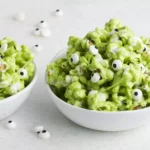If you’re looking to grow your hair quickly, there’s a good chance that you’ve considered using various hair care products, supplements, and even surgeries. However, it’s important to remember that the most effective way to promote hair growth is through your diet. By consuming the right foods, you can ensure that your hair grows thicker, stronger, and faster. In this article, we’ll explore the top foods that can help to make your hair grow quicker.
Nutritional Deficiency and Its Impact on Hair Health
Protein Deficiency: Hair is primarily composed of a protein called keratin. Without an adequate supply of protein, hair growth can slow down, and existing strands may become weak and brittle. Protein deficiency can lead to hair loss and a lack of strength, resulting in hair that breaks easily.
Iron Deficiency: Iron is essential for delivering oxygen to hair follicles and promoting healthy hair growth. An insufficient intake of iron can lead to anemia, which in turn can cause hair loss. Lack of iron may also affect the hair’s texture and quality, making it dull and dry.
Vitamin D Deficiency: Vitamin D plays a role in hair follicle cycling and the production of new hair shafts. Inadequate levels of vitamin D have been associated with hair loss, and maintaining optimal levels is crucial for overall hair health.
Biotin Deficiency: Biotin, also known as vitamin B7, is often touted for its role in promoting healthy hair, skin, and nails. A deficiency in biotin can lead to hair thinning and hair loss.
Vitamin A Deficiency: Vitamin A is important for the production of sebum, the natural oil that keeps the scalp moisturized. Without enough sebum, the scalp can become dry and itchy, potentially leading to hair breakage.
Omega-3 Fatty Acid Deficiency: Omega-3 fatty acids contribute to the health of hair follicles and the overall hydration of the scalp. A lack of these fatty acids can result in a dry scalp and brittle hair.
Zinc Deficiency: Zinc is involved in the repair and growth of hair tissue. A deficiency in zinc can lead to hair thinning and hair loss.
Vitamin E Deficiency: Vitamin E is an antioxidant that helps protect hair cells from damage. A deficiency may contribute to oxidative stress on the scalp and hair, leading to weaker strands.
Foods That Promote Hair Growth
Salmon
Rich in omega-3 fatty acids, salmon helps to keep your scalp healthy and prevent hair loss. It also contains protein and vitamin D, both of which are essential for strong, shiny hair.
Eggs
Eggs are a great source of protein and biotin, which are both important for promoting hair growth. They also contain zinc, selenium, and other nutrients that can help to keep your hair healthy and strong.
Spinach
Dark leafy greens like spinach are packed with iron, a mineral that helps to deliver oxygen to your hair follicles. They also contain vitamins A and C, which help to produce sebum, a natural oil that keeps your hair moisturized.
Avocado
With its high levels of healthy fats, vitamin E, and vitamin C, avocado can help to nourish your hair from the inside out. It also contains biotin, which is known to promote hair growth.
Sweet Potatoes
Sweet potatoes are an excellent source of beta-carotene, a nutrient that your body converts into vitamin A. This vitamin promotes the production of sebum, which helps to keep your hair healthy and hydrated.
Nuts and Seeds
Nuts and seeds serve as excellent reservoirs of diverse nutrients that are highly beneficial for promoting hair growth. Here’s a breakdown of some key examples:
- Walnuts: Rich in Omega-3 fatty acids and vitamin E.
- Sunflower Seeds: Abundant in Vitamin E and B complex vitamins.
- Flax Seeds and Chia Seeds: Packed with Omega-3 fatty acids and antioxidants.
- Brazil Nuts: Provide Selenium, zinc, and B vitamins.
- Cashews: Contain Vitamin C, B vitamins, and iron.
- Almonds: Offer a blend of iron, zinc, vitamin E, and B vitamins.
Omega-3 fatty acids found in nuts differ from those found in fatty fish. Although the body may not utilize this form of Omega-3 as efficiently as the kind present in fatty fish, nuts and seeds still offer a valuable source of Omega-3s, especially for individuals who do not regularly consume fish in their diet.
Comparisons between Different Foods
Many different foods can help to promote hair growth, but some are more effective than others. For example, while both eggs and spinach are good sources of protein, eggs also contain biotin which is known to promote hair growth. Similarly, while both salmon and avocado are rich in healthy fats, salmon also contains vitamin D which is important for maintaining healthy hair follicles.
It’s important to remember that no single food can provide all the nutrients your hair needs to grow quickly. A balanced diet that includes a variety of nutrient-dense foods is essential for promoting hair growth and overall health.
Advices for Improving Hair Growth with Diet
In addition to eating the right foods, there are several other steps you can take to improve your hair growth:
- Stay hydrated – Drinking plenty of water can help to keep your hair hydrated and prevent breakage.
- Limit processed foods – Processed foods are often high in sugar and unhealthy fats, which can contribute to hair loss and damage.
- Avoid crash diets – Rapid weight loss can cause hair loss and damage, so it’s important to lose weight gradually and sustainably.
- Get enough sleep – Lack of sleep can disrupt your body’s natural processes, including hair growth.
- Manage stress – Chronic stress can lead to hair loss, so it’s important to find ways to manage stress, such as exercise or meditation.
By following these tips and incorporating more hair-healthy foods into your diet, you can promote faster hair growth and achieve strong, healthy hair.
FAQs
- Are there any vitamins or supplements that can help with hair growth? Yes, certain vitamins and supplements like biotin, vitamin D, and iron can help promote hair growth.
- Can cutting my hair frequently help it to grow faster? No, cutting your hair doesn’t affect its rate of growth.
- Does stress contribute to hair loss? Yes, chronic stress can lead to hair loss by disrupting the natural hair growth cycle.
- Can heat styling tools like curling irons and straighteners damage my hair? Yes, excessive heat can cause damage to your hair, leading to breakage and split ends. It’s important to use these tools sparingly and protect your hair with a heat protectant spray.
- How long does it take to see results from a healthy diet for hair growth? While everyone’s hair growth rate is different, it typically takes several months of eating a healthy, nutrient-dense diet before you start to see noticeable improvements in hair growth and health.
Conclusion
If you’re looking to grow your hair quickly, the key is to focus on a healthy, balanced diet that includes plenty of nutrient-dense foods. From salmon and spinach to sweet potatoes and avocado, there are many delicious foods that can help to promote stronger, thicker, and faster-growing hair. By following these tips and incorporating more hair-healthy foods into your diet , you can enjoy the benefits of healthy hair and feel confident in your appearance. Remember to also stay hydrated, limit processed foods, and manage stress for optimal hair growth and overall health. With these tips and a little patience, you’ll be well on your way to achieving the luscious locks of your dreams.







